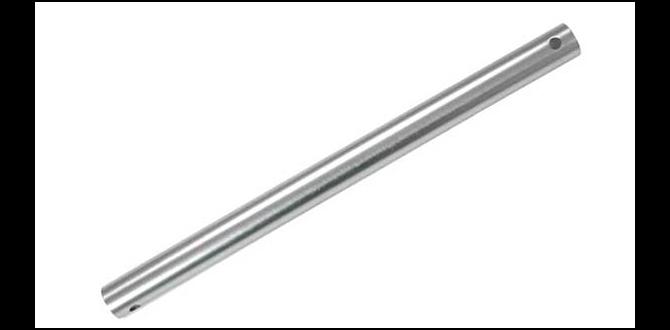Dog urine itself isn’t usually dangerous during pregnancy, but the bacteria and parasites it might contain can pose risks. Proper hygiene, avoiding direct contact, and ensuring your dog is healthy are key to staying safe. Always talk to your doctor if you have concerns about potential health risks during pregnancy.
Are you pregnant and worried about your furry friend’s little accidents? It’s completely normal to feel a bit anxious. Being pregnant comes with a whole list of things to think about, and suddenly, even your well-behaved dog’s occasional slip-up seems like a big deal. Don’t worry, you’re not alone! Many expecting parents have the same concerns.
This article breaks down everything you need to know about dog urine and pregnancy. We’ll look at the real risks, how to protect yourself, and what steps you can take to keep both you and your baby healthy. Ready to ease your worries and get practical advice? Let’s dive in!
Understanding the Risks: What’s in Dog Urine?
Dog urine isn’t just water and waste. It can contain bacteria, parasites, and other substances that might be harmful, especially during pregnancy when your immune system is a bit more sensitive. Understanding these potential risks is the first step in protecting yourself and your baby.
Bacteria and Infections
Dog urine can harbor bacteria like E. coli and Leptospira. While most healthy adults can handle these germs, pregnant women need to be extra careful. Here’s why:
- E. coli: This bacteria can cause urinary tract infections (UTIs). UTIs during pregnancy can lead to complications like preterm labor and low birth weight.
- Leptospira: Dogs can carry Leptospira bacteria and spread it through their urine. This can cause leptospirosis, a disease that can lead to kidney damage and other serious issues.
Parasites and Worms
Parasites like roundworms and hookworms can also be found in dog feces and sometimes in urine if the dog is infected. These parasites can cause health problems if you accidentally ingest them.
- Roundworms and Hookworms: These parasites can live in a dog’s intestines and their eggs can be present in the dog’s stool. Although less common in urine, contamination is possible. If humans ingest these eggs, it can lead to various health issues.
Ammonia and Other Chemicals
Dog urine contains ammonia, which is what gives it that strong smell. High levels of ammonia can irritate your skin and respiratory system, especially if you’re cleaning up accidents in a poorly ventilated area. Other chemicals in dog urine can also be irritating.
How to Protect Yourself: Safety Measures
Now that you know the potential risks, let’s talk about how to protect yourself. These simple steps can help you minimize your exposure to harmful bacteria and parasites, keeping you and your baby safe.
Avoid Direct Contact
The easiest way to stay safe is to avoid direct contact with dog urine. This means not touching it with your bare hands or skin. Here’s how to do it:
- Wear gloves: Always wear disposable gloves when cleaning up dog urine.
- Wash your hands: After removing the gloves, wash your hands thoroughly with soap and water.
Proper Cleaning Techniques
Cleaning up dog urine properly is essential to prevent the spread of bacteria and parasites. Follow these steps to ensure a thorough clean:
- Blot the area: Use paper towels to soak up as much urine as possible.
- Disinfect the area: Use a disinfectant cleaner that is effective against bacteria and viruses. Look for products labeled as pet-safe.
- Rinse with water: After disinfecting, rinse the area with clean water to remove any residue.
- Dry the area: Use a clean cloth or paper towels to dry the area completely.
Maintain Good Hygiene
Good personal hygiene is crucial when you’re pregnant. Here are some simple habits to adopt:
- Wash your hands frequently: Wash your hands with soap and water after touching your dog, cleaning up after your dog, or being in areas where your dog has been.
- Avoid touching your face: Try not to touch your face, especially your mouth, nose, and eyes, to prevent the spread of germs.
- Keep your home clean: Regularly clean and disinfect surfaces in your home to minimize the risk of contamination.
Keep Your Dog Healthy
A healthy dog is less likely to carry harmful bacteria and parasites in their urine. Here’s how to keep your dog healthy:
- Regular vet visits: Take your dog to the vet for regular check-ups and vaccinations.
- Parasite prevention: Use preventative medications to protect your dog from fleas, ticks, and worms.
- Proper diet: Feed your dog a balanced diet to keep their immune system strong.
Specific Scenarios: How to Handle Different Situations
Let’s look at some specific scenarios you might encounter and how to handle them safely.
Cleaning Up Accidents Indoors
Indoor accidents happen, especially with puppies or older dogs. Here’s a step-by-step guide to cleaning up indoor dog urine safely:
- Gear up: Put on disposable gloves to protect your hands.
- Blot the urine: Use paper towels to soak up as much of the urine as possible. Press down firmly to absorb the liquid.
- Apply disinfectant: Spray the area with a pet-safe disinfectant cleaner. Make sure to cover the entire area that was soiled.
- Wait: Let the disinfectant sit for the time recommended on the product label, usually about 5-10 minutes.
- Wipe and rinse: Wipe the area with a clean, damp cloth to remove any residue.
- Dry thoroughly: Use a clean, dry cloth to dry the area completely.
- Dispose of waste: Place the used paper towels and gloves in a plastic bag and dispose of them properly.
- Wash your hands: Wash your hands thoroughly with soap and water.
Gardening and Outdoor Activities
If your dog urinates in your garden or yard, there are a few extra precautions you should take:
- Wear gloves: Always wear gardening gloves when working in the soil.
- Avoid touching your face: Refrain from touching your face while gardening.
- Wash produce thoroughly: If your dog has urinated near your vegetable garden, wash your produce thoroughly before eating it.
- Consider fencing: If possible, fence off areas where you grow food to prevent your dog from urinating there.
Dog Parks and Public Areas
Dog parks and other public areas can be risky because you don’t know the health status of other dogs. Here’s how to stay safe:
- Avoid direct contact: Try to avoid direct contact with dog urine in public areas.
- Wear shoes: Always wear shoes to protect your feet from contamination.
- Wash your hands: Wash your hands thoroughly after visiting a dog park or other public area.
Essential Products for Safe Cleanup
Having the right products on hand can make cleaning up dog urine much easier and safer. Here are some essentials:
- Disposable gloves: Protect your hands from direct contact with urine.
- Paper towels: For soaking up urine.
- Pet-safe disinfectant cleaner: Kills bacteria and viruses without harming your pets.
- Enzyme cleaner: Breaks down urine and eliminates odors.
- Hand soap: For washing your hands thoroughly.
Here’s a quick look at some recommended products:
| Product | Description | Why It’s Useful |
|---|---|---|
| Disposable Gloves | Latex or nitrile gloves | Protect your hands from bacteria and parasites. |
| Pet-Safe Disinfectant Cleaner | Disinfectant spray or wipes | Kills germs and bacteria on surfaces. |
| Enzyme Cleaner | Spray or liquid with enzymes | Breaks down urine and eliminates odors. |
| Hand Soap | Antibacterial hand soap | Thoroughly cleans hands after cleanup. |
When to Consult a Doctor
While taking precautions can significantly reduce your risk, it’s always a good idea to consult your doctor if you have any concerns. Here are some situations where you should seek medical advice:
- You develop symptoms of a UTI: Symptoms include frequent urination, burning sensation when urinating, and cloudy or bloody urine.
- You suspect you’ve been exposed to leptospirosis: Symptoms include fever, headache, muscle aches, and jaundice.
- You have any other health concerns: If you’re feeling unwell or have any concerns about your health, don’t hesitate to contact your doctor.
Your doctor can provide personalized advice and treatment based on your specific situation. They may also recommend certain tests to check for infections or other health problems.
Maintaining a Safe and Healthy Environment
Creating a safe and healthy environment for both you and your dog during pregnancy involves a combination of prevention, hygiene, and regular veterinary care. By following the tips outlined in this article, you can minimize the risks associated with dog urine and enjoy a happy, healthy pregnancy.
Tips for a Pet-Friendly Pregnancy
- Delegate cleaning tasks: If possible, ask a family member or friend to help with cleaning up after your dog.
- Use pee pads: If you have a puppy or an older dog with incontinence issues, use pee pads to contain accidents.
- Train your dog: Train your dog to eliminate in a designated area to minimize accidents indoors.
- Regularly clean your home: Keep your home clean and well-ventilated to reduce the risk of exposure to harmful substances.
Additional Resources
For more information on pregnancy safety and pet care, check out these resources:
- CDC – Pets and Pregnant Women
- American Veterinary Medical Association – Dog Care
- Mayo Clinic – Pregnancy Week by Week
FAQ: Dog Urine and Pregnancy
1. Can I get sick from my dog’s urine while pregnant?
Yes, you can potentially get sick. Dog urine can contain bacteria like E. coli and parasites like roundworms, which can cause infections and other health issues. Proper hygiene and avoiding direct contact are key to staying safe.
2. What should I do if I accidentally touch dog urine?
If you accidentally touch dog urine, wash your hands immediately and thoroughly with soap and water. If you develop any symptoms like skin irritation or a rash, consult your doctor.
3. Is it safe to clean up dog urine while pregnant?
Yes, it’s generally safe as long as you take precautions. Wear disposable gloves, use a pet-safe disinfectant cleaner, and wash your hands thoroughly afterward. If possible, ask someone else to do the cleaning.
4. What kind of cleaner should I use to clean up dog urine?
Use a pet-safe disinfectant cleaner or an enzyme cleaner specifically designed to break down urine and eliminate odors. Avoid using harsh chemicals like bleach, as they can be harmful to you and your dog.
5. How can I prevent my dog from urinating indoors?
Regular potty breaks, consistent training, and addressing any underlying medical issues can help prevent indoor accidents. If your dog is having trouble holding their urine, consult your veterinarian.
6. Should I be worried about my dog licking me while I’m pregnant?
While dog saliva is generally safe, it can still carry bacteria. Avoid letting your dog lick your face, especially around your mouth and nose. Wash your hands after your dog licks you.
7. Can dog urine affect my unborn baby?
If you contract an infection from bacteria or parasites in dog urine, it could potentially affect your unborn baby. UTIs and other infections can lead to complications like preterm labor and low birth weight. Prevention and prompt treatment are essential.
Conclusion
Dealing with dog urine during pregnancy doesn’t have to be a major source of stress. By understanding the potential risks and taking simple precautions, you can create a safe and healthy environment for yourself and your growing family. Remember to prioritize hygiene, keep your dog healthy, and consult your doctor if you have any concerns. With the right knowledge and a few practical steps, you can enjoy your pregnancy with your furry friend by your side, worry-free. You’ve got this!





